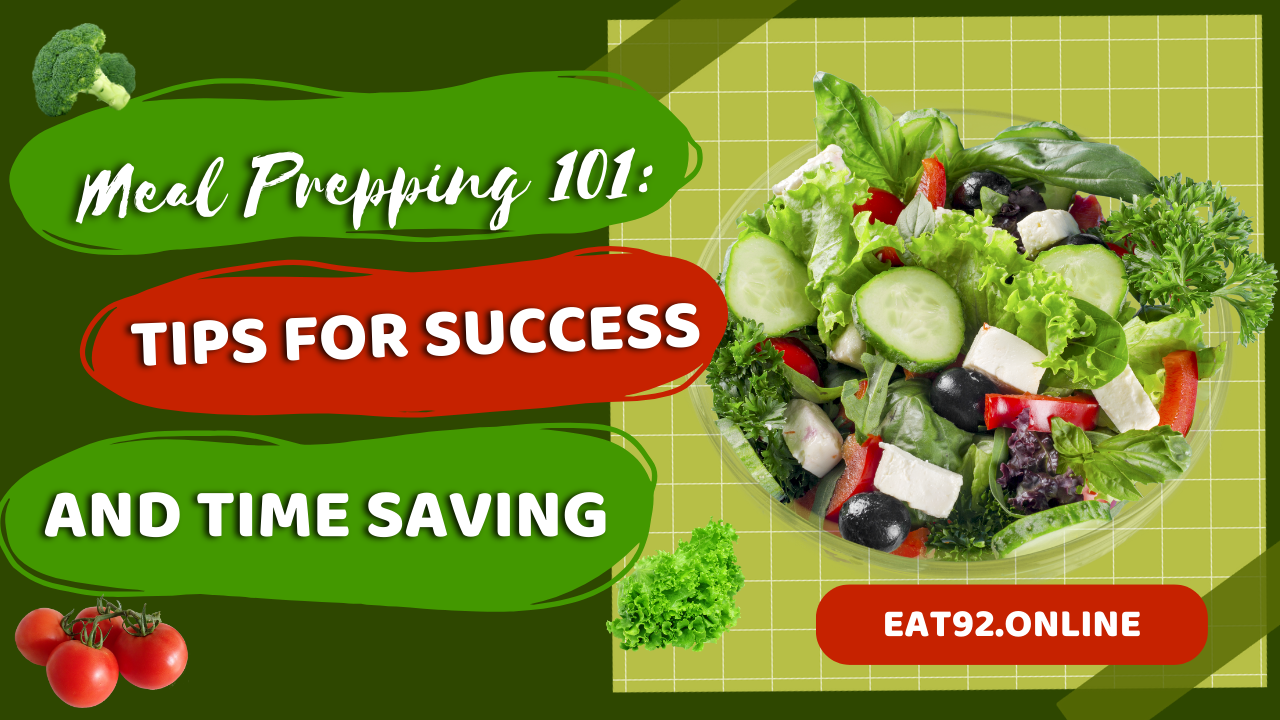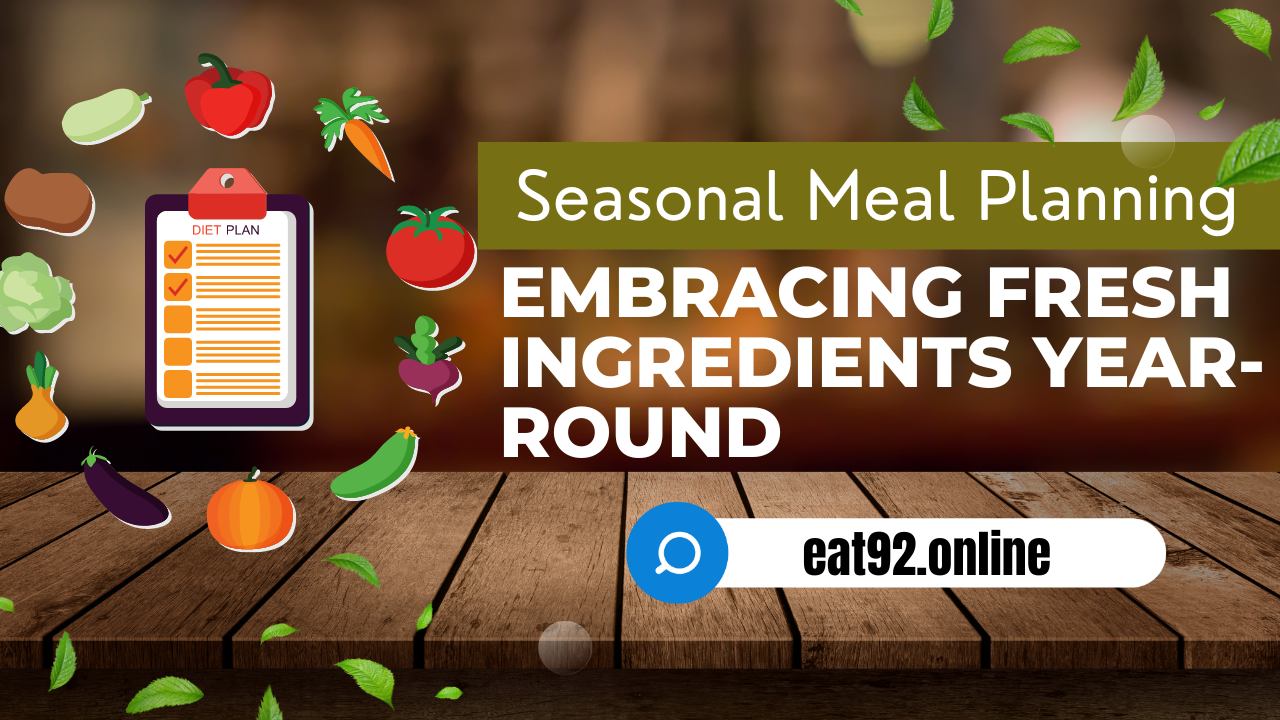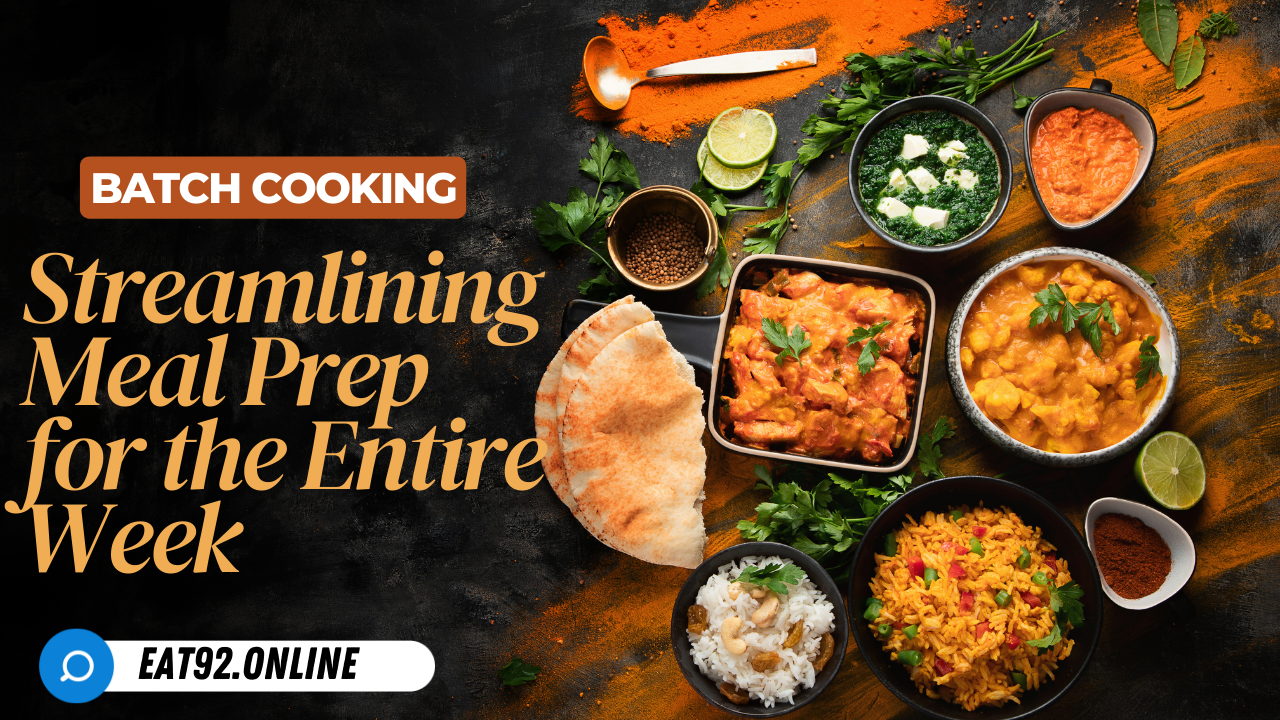Meal Prepping 101: Tips for Success and Time-Saving

Introduction
Meal prepping has become a lifesaver for those leading busy lives, juggling work, family, and personal commitments. The art of planning and preparing meals in advance not only saves time but also ensures that you maintain a healthy and balanced diet. In this guide, we’ll delve into Meal Prepping 101, offering valuable tips for success and time-saving.
A. Brief Overview of Meal Prepping
Meal prepping involves preparing and planning your meals ahead of time, typically for a week. It’s a strategic approach to cooking that helps individuals stay on top of their nutritional goals while minimizing daily cooking efforts.
B. Importance of Meal Prepping for Busy Individuals
For those with hectic schedules, meal prepping is a game-changer. It eliminates the need to cook every day, reduces the temptation of unhealthy fast food, and ensures that nutritious meals are readily available.
II. Getting Started with Meal Prepping
A. Planning Your Meals
1. Setting Realistic Goals
Begin by setting achievable meal-prepping goals. Consider factors like your cooking skills, available time, and dietary preferences.
2. Choosing Recipes Wisely
Opt for recipes that are simple yet nutritious. Balance is key, so include a variety of proteins, vegetables, and carbohydrates.
B. Creating a Grocery List
1. Prioritizing Nutritious Ingredients
Build a shopping list focusing on fresh produce, lean proteins, whole grains, and healthy fats.
2. Smart Shopping Tips
Stick to your list and avoid impulsive purchases. Consider buying in bulk for cost savings.
III. Essential Tools for Meal Prepping
A. High-Quality Storage Containers
Invest in durable, airtight containers to keep your meals fresh. Opt for containers that are microwave and dishwasher-safe for convenience.
B. Efficient Kitchen Appliances
1. Slow Cooker
A slow cooker is a meal prepper’s best friend. It allows for easy batch cooking, saving both time and effort.
2. Instant Pot
The Instant Pot is a versatile appliance that significantly reduces cooking time, making it a valuable addition to your kitchen arsenal.
IV. Tips for Efficient Meal Prepping
A. Batch Cooking
1. Cooking in Bulk
Prepare large quantities of staple ingredients, such as grains and proteins, to use in multiple meals throughout the week.
2. Freezing Portions
Utilize your freezer to store portions of meals for future use, preventing food waste.
B. Organizing Your Kitchen Workspace
1. Streamlining the Process
Arrange your kitchen efficiently, placing frequently used items within easy reach.
2. Minimizing Cleanup Time
Clean as you go to avoid a cluttered workspace, making the post-prepping cleanup a breeze.
V. Building Balanced and Nutritious Meals
A. Incorporating Diverse Food Groups
Create well-rounded meals by including a variety of fruits, vegetables, lean proteins, and whole grains.
B. Portion Control for a Healthy Lifestyle
Maintain portion sizes to support your health goals, whether it’s weight maintenance, loss, or muscle gain.
VI. Overcoming Common Meal-Prepping Challenges
A. Dealing with Food Boredom
Combat food monotony by rotating recipes and experimenting with new flavors and cuisines.
B. Adapting to Dietary Changes
Adjust your meal-prepping routine to accommodate changes in dietary needs, ensuring your meals remain suitable and enjoyable.
VII. Meal Prepping for Special Diets
A. Vegan and Vegetarian Options
Explore plant-based meal-prepping options, rich in nutrients and flavors.
B. Gluten-free and Allergen-Friendly Meal Prepping
Adapt recipes for those with dietary restrictions, ensuring inclusivity in your meal-prepping routine.
VIII. Creating a Weekly Meal Prepping Routine
A. Finding a Schedule That Works for You
Experiment with different days and times to determine the most convenient and consistent meal-prepping routine.
B. Staying Consistent and Motivated
Make meal prepping a habit by incorporating it into your weekly schedule. Stay motivated by celebrating your successes.
IX. Maximizing Time-Saving Strategies
A. Prepping Versatile Ingredients
Choose ingredients that can be used in multiple recipes, saving both time and money.
B. Quick and Easy Recipes for Busy Days
Keep a repertoire of quick recipes for those days when time is scarce.
X. Success Stories and Testimonials
A. Real-Life Examples of Successful Meal Preppers
Hear inspiring stories from individuals who have successfully integrated meal prepping into their busy lives.
B. Learning from Others’ Experiences
Gain insights into different approaches and learn from the experiences of fellow meal preppers.
XI. Frequently Asked Questions (FAQs)
A. How Long Can I Store Prepped Meals?
Stored properly, most prepped meals can last up to 4-5 days in the refrigerator.
B. Is Meal Prepping Suitable for Weight Loss?
Yes, meal prepping can aid in weight loss by providing portion control and promoting healthier food choices.
C. Can I Meal Prep on a Budget?
Absolutely! Planning meals in advance allows for strategic budgeting, reducing overall food expenses.
D. What Are Some Creative Meal Prepping Ideas?
Explore cuisines, experiment with spices, and try new recipes to keep your meals exciting.
E. How Do I Avoid Meal Prepping Burnout?
Rotate recipes regularly, involve family members, and treat yourself to occasional dining out to keep the process enjoyable.
XII. Conclusion
In conclusion, mastering meal prepping is a powerful skill that can transform your approach to nutrition and save you precious time. By following the tips outlined in this guide, you can seamlessly incorporate meal prepping into your routine, leading to a healthier and more efficient lifestyle.




